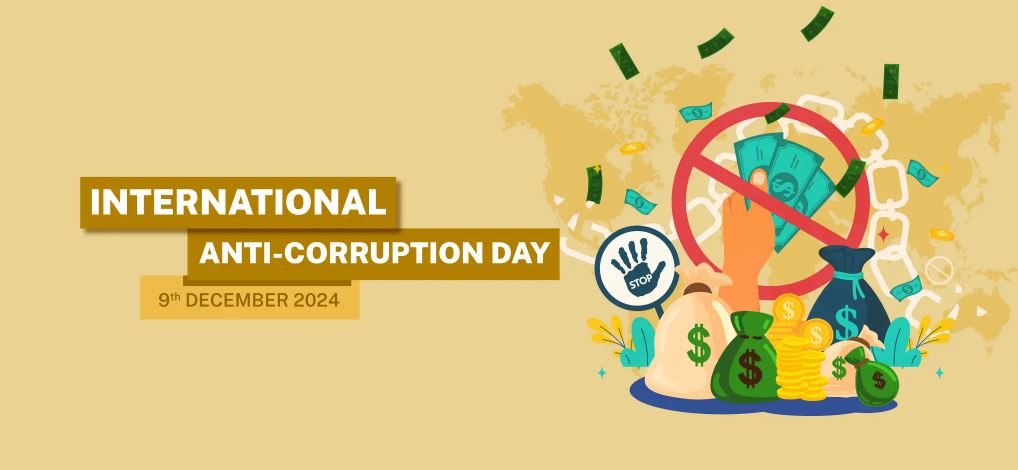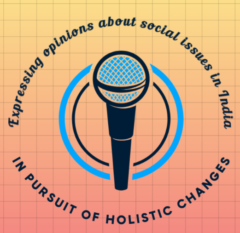
International Anti-Corruption Day 2024 is observed on December 9. This day aims to raise awareness about corruption’s detrimental effects on society. The theme for this year is “Uniting with Youth Against Corruption: Shaping Tomorrow’s Integrity.” This theme highlights the importance of engaging youth in the fight against corruption. It encourages young people to take action and promote integrity in their communities.
Understanding the Importance of International Anti-Corruption Day
International Anti-Corruption Day was established by the United Nations in 2003. It coincides with the adoption of the United Nations Convention Against Corruption (UNCAC). The day serves as a reminder of the collective responsibility to combat corruption globally. In India, corruption remains a significant challenge, affecting governance and public trust.
According to the 2023 Corruption Perceptions Index, India ranks 93rd out of 180 countries. This ranking underscores the urgent need for effective anti-corruption measures. Corruption not only undermines economic growth but also fuels inequality and social unrest. As former UN Secretary-General Kofi Annan stated, “Corruption is an insidious plague that has a wide range of corrosive effects on societies.”
The Societal Impact of Corruption in India
Corruption affects every aspect of life in India. It hampers access to essential services like healthcare and education. A staggering 62% of Indians believe corruption has increased recently. This perception erodes trust in public institutions and discourages civic engagement.
Moreover, corruption disproportionately affects marginalized communities. They often lack resources to navigate corrupt systems. For instance, a study found that over 50% of low-income families reported paying bribes for basic services. Such practices perpetuate a cycle of poverty and inequality.
In addition, corruption can lead to severe consequences in critical sectors like health and education. For example, when funds meant for public health are siphoned off, it results in inadequate medical facilities. This can lead to higher mortality rates and lower quality of life for citizens.
Evaluating India’s Anti-Corruption Framework
India has implemented several anti-corruption laws and policies. The Prevention of Corruption Act and the Right to Information Act (RTI) are notable examples. These laws aim to promote transparency and accountability in governance.
However, enforcement remains a challenge. The Central Bureau of Investigation (CBI) often faces political interference, hindering its effectiveness. In fact, only 2% of reported corruption cases lead to convictions, highlighting systemic flaws.
As former Indian Prime Minister Manmohan Singh noted, “Corruption is a serious threat to our democracy.” Strengthening institutions is crucial for combating this menace effectively.
Furthermore, public awareness about these laws is lacking. Many citizens do not know their rights under the RTI Act or how to file complaints against corrupt officials. Increasing awareness can empower citizens to take action against corruption.
Grassroots Movements Leading Change
Grassroots movements play a vital role in fighting corruption in India. Initiatives like India Against Corruption have mobilized citizens to demand accountability from leaders. These movements raise awareness and foster civic engagement.
Social activist Anna Hazare’s movement gained significant traction in 2011. It united millions in the fight for stronger anti-corruption laws. Such grassroots efforts are essential for creating a culture of integrity.
Moreover, local organizations have been instrumental in educating citizens about their rights. They conduct workshops and campaigns that encourage people to report corrupt practices without fear of retaliation.
Digital Transformation: A Tool Against Corruption
Digitalization offers promising solutions to combat corruption in India. E-governance initiatives aim to increase transparency in government services. By digitizing processes, opportunities for bribery decrease significantly.
For example, online platforms allow citizens to access services like passport issuance without intermediaries. According to recent data, e-governance has reduced corruption incidents by 30% in certain sectors.
As technology expert Nandan Nilekani stated, “Technology can be a powerful tool for transparency.” Embracing digital solutions is vital for fostering accountability.
Additionally, mobile applications have emerged as effective tools for reporting corruption anonymously. Scams like the Digital Arrest scam have taken the country by storm in recent times where many people have lost crores by offering bribes to scamsters to evade such fake digital arrests. Citizens can now report such incidents directly to authorities without fear of exposure or backlash.
Future Directions: Strengthening Anti-Corruption Measures
To effectively combat corruption, holistic changes are necessary:
- Strengthening Institutions: Enhance the independence of anti-corruption agencies like the CBI.
- Promoting Transparency: Implement stringent regulations on political financing.
- Encouraging Civic Engagement: Foster a culture where citizens actively report corrupt practices.
- Empowering Youth: Involve young people in anti-corruption initiatives and decision-making processes.
These measures can create an environment where integrity flourishes. Moreover, international cooperation is essential in tackling cross-border corruption issues. Countries must work together to share best practices and strategies that have proven effective elsewhere.
Conclusion: A Collective Responsibility
International Anti-Corruption Day 2024 serves as a crucial reminder that combating corruption requires collective action. Citizens, civil society, and governments must work together to promote transparency and accountability.
As we reflect on this day, let us ask ourselves: How can we contribute to this cause? Each one of us has a role to play in fostering integrity within our communities. Together, we can create a future free from corruption.
Join the movement today! Engage with your local community and advocate for transparency in governance. Your voice matters—let’s unite against corruption! Express India, express yourself in India’s fight against corruption in the Comments section below.

Well written. Message beautifully conveyed.
Thank you, Sindhu ji!
Good blog on corruption
Thank you, Manish!
Ranjan bro, congrats. Well written. Corruption is indeed a deep-rooted malady. Humans have a self-preservation instinct (survival instinct). Corruption is a malignant form of self-preservation. As long as humanity exists there will be corruption. Don’t think that I am cynical. But it is a fact. In our modern civilized society several good personae have time and again tried to enlighten the society, as you have mentioned. But does it have any impact? If it had, there would not have been Adanis, Ambanis, Narayana Murthys, hundreds of politicians of dubious nature. That does not mean that we should not raise our voice. People like you are doing a good service; please carry on!
Thanks Joseph sir for your support! Yes, I understand that corruption is deep-rooted in our country and eradicating it entirely is an uphill task. None the less, each of us should strive to do all we can on an individual level not to support such social evils. Who knows? With a generational shift, things could change for the better. This year theme itself is aimed at the youth, to get them engaged in the movement against corruption.